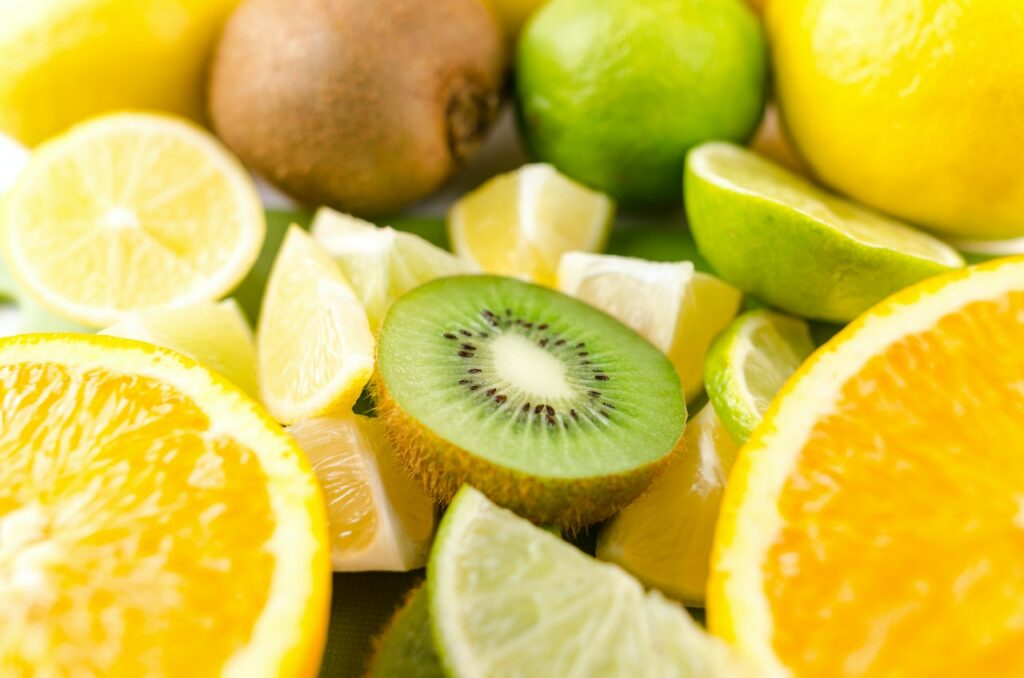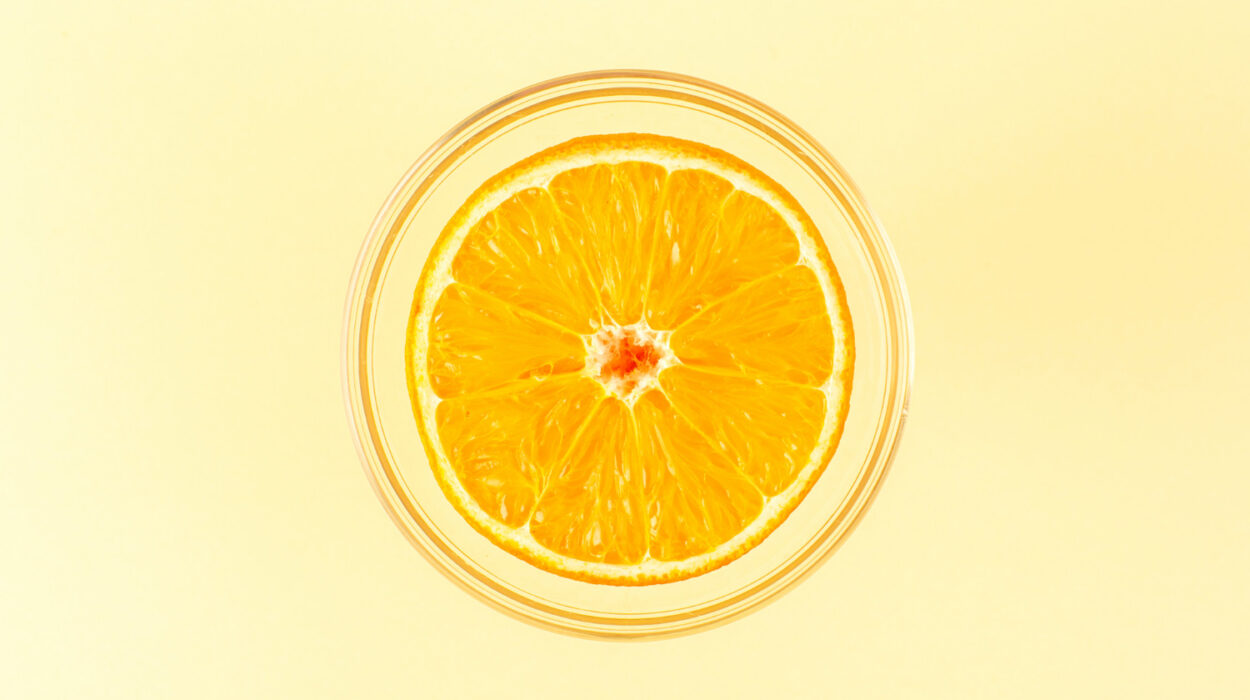It is well known that vitamin C, an essential micronutrient, has amazing health advantages. Oranges and other vitamin C-rich fruits have been acclaimed as amazing natural cures for the common cold and other chronic illnesses. Simply eating them has been praised as a wonderful natural therapy. A wealth of additional methods that vitamin C can boost your general well-being have just come to light according to recent study.
What Is Vitamin C?
Vitamin C, also known as L-ascorbic acid, is a water-soluble vitamin that can be found in a variety of foods. Fruits and vegetables such as red peppers, oranges, and grapefruits are among these sources. Since the body cannot produce vitamin C by itself, it is classified as an essential nutrient. This means that we need to get it from food or supplements.
What Does Vitamin C Do for the Body?
Vitamin C is essential for maintaining good health because it functions as an antioxidant in our systems by scavenging dangerous substances called free radicals.
In addition, vitamin C can also do the following:
- Boost immune function
- Enhance iron absorption
- Aid in maintaining healthy skin, bones, cartilage, and blood vessels
- assist in wound healing
5 Health Benefits of Vitamin C
Including enough vitamin C in your diet each day has the potential to improve a number of medical ailments. Explore the benefits that vitamin C may offer by reading on.
1. Heart Health
As free radicals are bound by vitamin C, blood pressure is regulated and the risk of heart disease is decreased, both of which are good for the heart. It is also very important for keeping blood vessels in good condition.
An effective way to lower blood pressure, which is a risk factor for heart disease, particularly in people with high blood pressure, according to a meta-analysis of eight research, is to take vitamin C supplements.
Another analysis found that select populations of persons who use vitamin C supplements have lower cholesterol and triglyceride levels. Those with low vitamin C levels, high cholesterol, or high triglyceride levels are included in this.
2. Gout Attacks
Vitamin C may help lower serum uric acid levels in the body, thereby protecting against gout flare-ups. Gout, a kind of arthritis notorious for generating acute pain and inflammation in the joints, may benefit from this vitamin.
Interesting to notice is the possibility that vitamin C can delay the start of gout. 500 milligrams of vitamin C taken daily as a supplement lowered the likelihood of new gout diagnoses by 12%, according to a randomized controlled trial including more than 1,400 middle-aged male physicians.
3. Immune Function
Strong antioxidant vitamin C protects our cells from the harm caused by free radicals.
When there are too many free radical molecules in the environment, they begin to accumulate and cause oxidative stress. This can result in a slew of chronic ailments. Vitamin C not only protects against oxidative stress, but it also strengthens the immune system and the natural barrier of your skin.
Vitamin C is frequently promoted as a natural remedy for the common cold. Although research findings on this claim are mixed, it might have a slight impact on reducing the duration of symptoms.
4. Skin Health
Your skin’s appearance and suppleness can both be improved by vitamin C. It’s quite neat since vitamin C may protect your skin from damaging ultraviolet (UV) rays in its capacity as an antioxidant.
Collagen is necessary for maintaining healthy skin, and vitamin C is believed to boost its production. Wrinkles and other aging symptoms emerge as a result of the normal production of collagen declining with age.
5. Iron Absorption
Nonheme iron, a particular form of iron frequently present in plant-based meals, can be more effectively absorbed when vitamin C is present. A disorder called iron deficiency anemia, which impairs the body’s capacity to generate healthy red blood cells, can be prevented in large part by this improved absorption. This condition can cause weariness, lightheadedness, pale complexion, and cold hands or feet.
A small review conducted on 63 male subjects revealed that consuming specific amounts of vitamin C along with iron led to an increase in iron absorption by more than eight times. To validate these results, nevertheless, additional study is needed. Another randomized clinical trial involving 440 adults discovered that combining vitamin C supplementation with iron supplementation only provided a minimal advantage for individuals with iron deficiency anemia, compared to using iron supplementation alone.
Can You Have Too Much Vitamin C?
Consuming large quantities of vitamin C is unlikely to cause harm. This is because once you consume a certain amount, any extra vitamin C is eliminated through urine. However, it’s important to note that negative side effects can occur, particularly when intake exceeds 3,000 milligrams per day.

Potential negative effects of consuming excessive amounts of vitamin C may include:
- Diarrhea
- Higher likelihood of developing kidney stones for individuals with kidney disease or a history of kidney stones
- Iron overload in people with hemochromatosis, a genetic condition that enhances iron absorption
It is important to note that for adults aged 19 and above, the Tolerable Upper Intake Level (UL) for vitamin C is 2,000 milligrams per day.
Risks of Not Getting Enough Vitamin C
Not getting enough vitamin C in your diet can lead to scurvy, a serious condition that demands immediate attention. Some signs of scurvy may include:
– Bleeding or swollen gums
– Feeling tired all the time
– Developing red or blue spots on your skin
– Slow healing of wounds
– Having hair that looks like corkscrews (with a funky coiled shape)
– Losing your teeth
– Feeling down or depressed
– Dealing with anemia
Scurvy is not very common in the United States, but it can occur when there is a deficiency of vitamin C in the diet. Some groups of people are more likely to experience this deficiency, such as smokers, individuals with restrictive diets or food allergies, and those with certain health conditions like iron overload or inflammatory bowel disease (IBS).
You Can Also Read: Vegan Protein Intake: 6 Best Foods for Optimal Protein Intake
Sources of Vitamin C
The best sources of your recommended daily allowance of vitamin C are fruits and vegetables.
Several foods that are top providers of vitamin C are listed below:
- Citrus fruits, including oranges, lemons and kiwis
- Strawberries
- Bell peppers
- Tomatoes
- White potatoes
- Cruciferous vegetables, such as broccoli, cabbage and cauliflower

Most people are able to get all the vitamin C they need by eating a balanced, healthy diet. In fact, research indicates that including at least five different portions of fruits and vegetables in a day’s worth of meals can provide you more than 200 milligrams of vitamin C.
Verify that your daily diet contains a sufficient amount of vitamin C. It acts as a sort of superhuman aid for nutrition absorption and wound healing. More health benefits can really be obtained by eating lots of delicious fruits and vegetables that are high in vitamin C.
